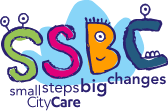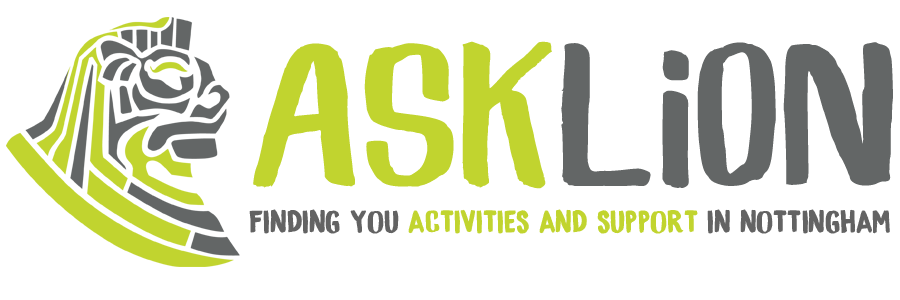Breastfeeding your baby: What to expect
For many parents, breastfeeding is a skill they learn together with their baby. Find out what to expect at key stages while you are breastfeeding.

Every drop of breastmilk helps to protect your baby’s health and development.
Breast milk is perfectly designed for your baby. It gives your baby everything they need for the first six months of their life. You may be feeding your baby directly from your breast, expressing your milk for bottle feeds, or offering some formula feeds.
On this page, you will find information about what to expect at key stages while you are breastfeeding.
There is lots of free extra support available to help you. You can speak to your Family Nurse, or your Nutrition Peer Support Worker. They can also tell you about groups where you can meet other breastfeeding families.
2 Days
The first milk you produce is called colostrum. It has lots of vitamins and antibodies and it is the perfect first food for your baby.
A new baby’s stomach is very small. They will need to feed little and often (usually every two to three hours). This includes during the night.
Breastfeeding your baby when they want to be fed and keeping them close to you will help your baby adjust to life outside of your body.
You may feel some discomfort. If you experience any pain while you are breastfeeding (for example if your nipples are very sore or pinched) speak to your Family Nurse or Children’s 0-19 Public Health Nurse.
Sometimes very small changes can make feeding your baby more comfortable. Your Family Nurse or Nutrition Peer Support Worker can help. They can also refer you for extra support.

10 days
At 10 days, you and your baby are continuing to get to know each other. Your baby is learning about their new world, and you are learning how to take care of them. You will both be getting used to your new routines, including feeding during the day and night.
Your body should have adjusted to feeding your baby. Your breasts and nipples should feel more comfortable. If you are feeling any pain, speak to your Family Nurse or Nutrition Peer Support Worker. They may be able to suggest ways to make you feel more comfortable when feeding.
You might find that your baby becomes ‘fussy’ around this time. They might want to feed more regularly, often in the evening. This is known as ‘cluster feeding’. It can be tiring but it is nothing to worry about as long as your baby is feeding well the rest of the time. It might help to think of ways you can make yourself more comfortable while you are feeding – for instance, preparing snacks and drinks before feeding and keeping them nearby.
Getting used to life with a new baby is wonderful, but it can sometimes feel overwhelming. Feeding will get easier as your baby grows. For now though, offer your baby a feed whenever they show signs that they are hungry. Remember, you cannot spoil a baby, so enjoy all of those cuddles.
6-8 weeks
Your milk supply will now be well established. You may notice that your breasts don’t feel as ‘full’ anymore. This does not mean that you are making less milk – it means that your body is now in tune with your baby and is producing the amount of milk that they need.
- Every time you breastfeed or give expressed breastmilk, you are sharing your immune system with your baby.
- Your body can recognise bacteria and viruses in your baby’s body and environment.
- You will start to make antibodies and pass them to your baby through your breastmilk.
Your baby will be due to have their first vaccinations around now. Try breastfeeding your baby during their vaccinations, or afterwards – research shows that it may help reduce their discomfort.
As your baby is getting a little older, you might find that you are going out together more. You might also be introducing your baby to new places and people.
It can feel daunting to breastfeed your baby outside of your home for the first time.

Feeding your baby outside your home
The UK Equality Act 2010 says that you can feed your baby wherever you need to (as long as there isn’t a health & safety risk to you and your baby). This includes public parks, cafes, restaurants, and leisure centres.
Some people find it difficult or scary to feed their baby when they're out and about.
In this video, Nottingham mums and dads talk about why breastfeeding in public is nothing to worry about.
3 months
This is an exciting time for you and your baby. They may be rolling, reaching for interesting objects and even beginning to laugh!
All babies develop at their own pace, but you will start to notice a lot of changes during this time. For instance:
- Their sleep may be less settled.
- They may want to feed more often.
Research shows that breastfed babies wake up as often as babies who have formula milk. However, breastmilk contains sleep hormones, so a feed is usually a good way to get your baby back to sleep.
Your milk supply is now well established. You might choose to start expressing your breastmilk. This means that your baby can be fed by someone else using a bottle. You can find out about expressing milk on the NHS website. You can also talk to your Family Nurse.

6 months
Your baby will now be reaching out, grabbing things, and very often putting them in their mouths! Your breastmilk will respond to this change in your baby’s behaviour – it will now contain even more antibacterial and antiviral enzymes.
Many babies are ready to try to eat solid food when they are 6 months old.
- Your breastmilk will continue to offer them the best nutrition and protection as they explore solid foods.
- Your baby will have experienced different tastes through your breastmilk, so you may find that they enjoy a range of different food flavours.
- You can continue to offer breastmilk to your baby during this time. By 9 months, babies should still be getting half of their calories from breastmilk.
The world is starting to seem like a very exciting place to your baby. You might find that they are easily distracted when feeding. Some parents find feeding in a quiet and darkened room can help.
Your baby may also be teething. You can continue to breastfeed once your baby has teeth. Most mothers find their baby will adjust how they feed so that it is comfortable for both of you. Your breastmilk will continue to be soothing for your baby while they are teething.
One year and beyond
Your baby will now have a varied diet and will be able to eat a range of different foods. They can now start to drink cow’s milk too.
Your breastmilk will still offer them comfort, immune protection, and nutrition. As your baby has grown, their needs have changed – and your milk will also have changed to meet those needs.
You may choose to continue breastfeeding your baby beyond their first year. This is referred to as ‘extended breastfeeding'. The World Health Organisation recommends breastfeeding up to two years old – and older if you and your baby wish to.
There are lots of benefits to mums who breastfeed for longer, including reducing the risk of some cancers.

Free breastfeeding support
Free support is available for every parent in Nottingham. With the right support, you can achieve their breastfeeding goals - whether that's trying breastfeeding once, or breastfeeding for many months.

How dads & partners can support with breastfeeding
Breastfeeding is a decision you can make together. Dads & partners can help too.



 Contact the Aspley Family Mentor Hub
Contact the Aspley Family Mentor Hub  Contact the Bulwell Family Mentor Hub
Contact the Bulwell Family Mentor Hub  Contact the Hyson Green and Arboretum Family Mentor Hub
Contact the Hyson Green and Arboretum Family Mentor Hub  Contact the St Ann’s Family Mentor Hub
Contact the St Ann’s Family Mentor Hub 